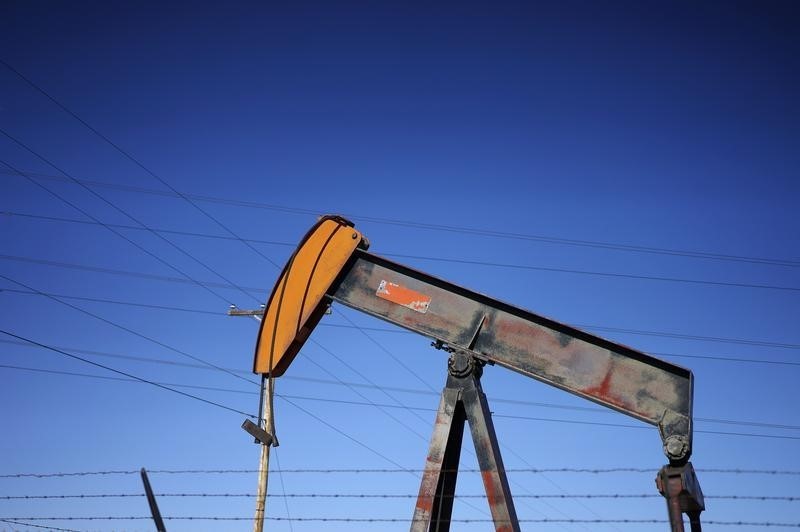By Florence Tan
SINGAPORE (Reuters) - Oil slipped on Thursday as weak data from the world's top economies raised concern about the outlook for global fuel demand, offsetting data that showed a large drawdown in U.S. crude stockpiles last week.
China, the world's top energy consumer, saw its economy losing more steam in April despite easier monetary policy, while Europe's largest economy, Germany, slowed in the first quarter. In the United States, retail sales were flat in April, dampening hopes of a sharp rebound in growth in the second quarter.
"We've had a round of very weak data in the last 24 hours and that's offset the strength that we would normally expect to come through from a larger than expected draw in U.S. inventories," said Michael McCarthy, chief strategist at CMC Markets in Sydney.
June Brent crude
Crude stocks in the United States fell for the second week, by 2.2 million barrels, following four months of steady gains, even though refiners pared back record seasonal run rates and imports jumped. Analysts had expected crude inventories to rise by 386,000 barrels. [EIA/S]
Despite the drop, stockpiles were still almost 90 million barrels higher than this time last year. A surprise increase in output in the No. 2 U.S. oil-producing state, North Dakota, in March also added to supply concerns.
"While U.S. rigs have more than halved already, U.S. crude production only showed a modest easing in the past weeks," ABN Amro analysts said in a note.
"As the fundamentals did not change, and the situation of oil oversupply lingers on, we see downside risks to oil prices."
The International Energy Agency warned on Tuesday that the global oil glut is building and consumption growth was still far from spectacular to absorb supply.
But the market remained split as speculative bets on higher prices pushed oil to 2015 highs last week. A weaker dollar, forecasts of lower U.S. output and stockpiling across Asia had also supported prices.
The approach of peak summer demand and a hurricane season in the United States that could disrupt supply also point to higher prices, CMC's McCarthy said.

"I think we're going to see a test of $70 for West Texas at some stage in the next 30 days," he said.